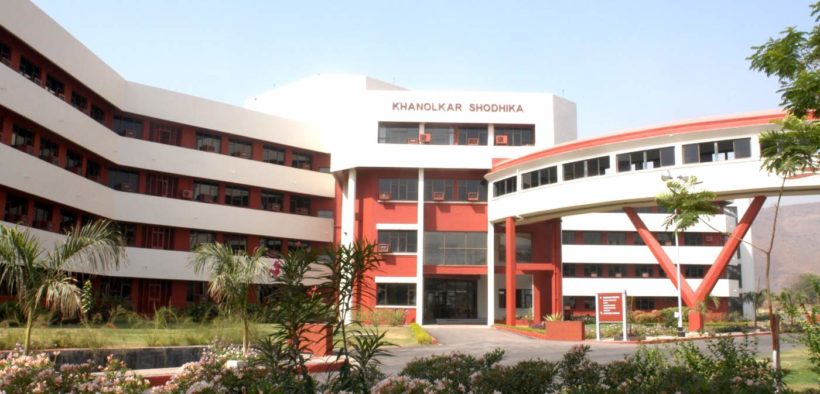ACTREC – Hub of innovative therapies

A team of researchers from the Advanced Centre for Treatment, Research and Education in Cancer (ACTREC), Mumbai, recently discovered the biological mechanism behind the protective nature of progesterone injections administered before breast cancer surgery. This single injection of progesterone decreases the likelihood of relapse in patients. ACTREC is the research and development division of the Tata Memorial Centre (TMC), Mumbai. TMC also boasts of Tata Memorial Hospital (TMH), the largest cancer hospital in Asia. The lush 60-acre ACTREC campus in Navi Mumbai houses two subdivisions: Clinical Research Centre (CRC) and Clinical Research Institute (CRI). Its directive is to serve as the national center of cancer treatment, research, and education.
The Clinical Research Centre, along with the research hospital, aims to treat cancer patients and perform clinical and translational research. The Cancer Research Institute is engaged in basic and applied cancer research. Basic, applied, clinical and translational researches carried out at the center are all geared towards gaining more knowledge about cancer. This would help with a timely cancer diagnosis and improved outcomes for the patients. Investigators are presently working on identifying molecular mechanisms that cause common cancers in India. “Our efforts focus on fostering innovative basic and clinical research with the aim of translating laboratory discoveries into useful diagnostic and therapeutic tools for effective patient management,” says Dr. S V Chiplunkar, former director of ACTREC, who recently made way for Dr. Sudeep Gupta. The clinicians and scientists work in association with their colleagues within the TMC and with national and international academicians and industry partners; 188 projects were underway in 2016 at ACTREC.

In the same year, 125 studies performed by the Centre’s. researches were published on PubMed, a free resource developed and maintained by the National Centre for Biotechnology Information and US National Library of Medicine. Of these, 66 were basic or applied researches and 59 were clinical or translational research. CRC and the 120-bed hospital is the hub of new developments at ACTREC. Two drugs developed by scientists at BARC— Withaferin A and diseleno-dipropionic acid (DSePA)—are undergoing preclinical testing at ACTREC for prophylaxis against graft versus host disease and radiation-induced pneumonitis in appropriate animal models, says Dr. Chiplunkar.
“We need to create a team of clinician-scientists who are expected to play a vital role in translating research findings to clinical settings,” she adds. Her lab primarily works on the identification of the impaired immune function in cancer patients. They have discovered an immune cell type that augments tumor growth in gall bladder cancer patients. “We are investigating the ‘immune landscapes’ of oral cancer, breast cancer, and cervical cancer, to understand which immune cell types infiltrate these tumors and how we can activate these cells to kill the cancer cells. We are also working on the gall bladder and pancreatic cancers, which have emerged as cancers associated with infection and inflammation,” she says. “We want to develop immune cell-based therapies for cancer patients. But we still do not have adequate infrastructure and regulatory policies developed to promote cancer research. We need to develop a strong network between research organizations engaged in cancer research and this has been initiated by the Tata Memorial Centre through the National Cancer Grid (NCG).” ACTREC aspires to play a pivotal role in the future in innovative drug development and therapies for cancer prevention and cure in the country.
“OUR EFFORTS FOCUS ON FOSTERING INNOVATIVE BASIC AND CLINICAL RESEARCH WITH THE AIM OF TRANSLATING LABORATORY DISCOVERIES INTO USEFUL DIAGNOSTIC AND THERAPEUTIC TOOLS FOR EFFECTIVE PATIENT MANAGEMENT.”
Dr S V Chiplunkar, Former Director, ACTREC
Fact File:
ACTREC
Location: Kharghar, Navi Mumbai
Founded in: 1997
DIRECTOR: Dr. Sudeep Gupta
















